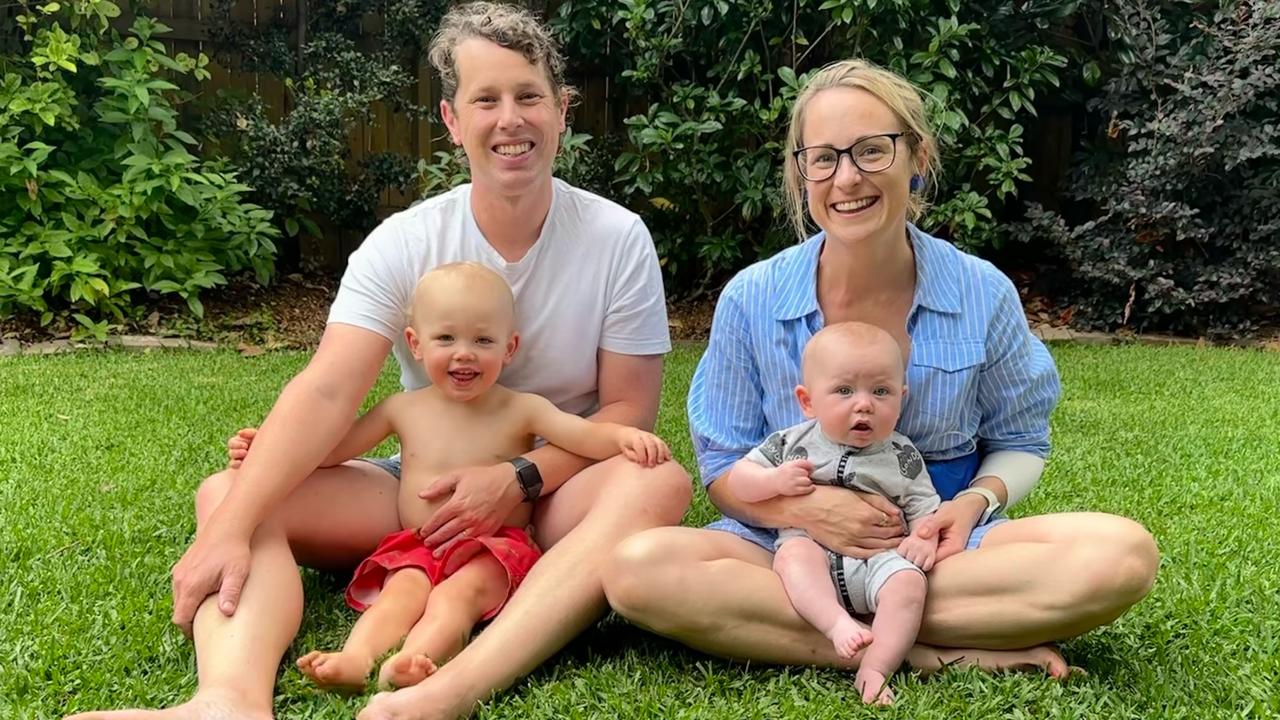Returning to work after parental leave: Tips for finding balance
Rising costs of living are compelling new parents to return to work sooner – but experts say there are options to make the move easier.
Cost-of-living pressures are forcing new parents to return to work sooner than planned, sparking concern for the wellbeing of children.
UNICEF is among those calling for a national 12-month paid parental leave scheme to allow mums and dads more time with their babies. But until then, experts urge new and prospective parents to limit their job search to family-friendly workplaces.
Inadequate time with parents or primary caregivers in the formative years contributes to poor mental health in children and ongoing difficulties establishing healthy relationships, says UNICEF Australia chief advocate for children Nicole Breeze.
“We know that quality connection time (with parents) is essential for a baby’s healthy development,” she says.
“But we also know it’s an economic stretch for many households to maintain a period of leave to care for new children and make ends meet at the same time.
“We need to do everything we can to remove those financial pressures (preventing parents spending time with children).”

PAID PARENTAL LEAVE SHORTCOMINGS
Two-thirds of Australians who take parental leave say household finances have forced them to return to work earlier than they would like, new research shows.
The 2024 National Working Families Survey – jointly commissioned by UNICEF Australia and social-impact advisory Parents At Work – finds most working mums now take little more than four months leave after the arrival of a new baby.
Half of dads take less than one month.
Parents At Work chief executive officer Emma Walsh says tight finances are sending parents back to work as soon as government-funded paid parental leave runs out, when babies are about four months old.
Many are returning even earlier as the paid leave – equivalent to the national minimum wage of about $882.75 per week – fails to meet household expenses.
“Often, paid parental leave is not a full replacement wage so (parents) have to go back (to work) just to pay the bills,” Walsh says.
“There’s no doubt that if people had adequate replacement wages made available to them to take paid parental leave, they would take it.”

FAMILY-FRIENDLY WORKPLACES
Working parents and those planning a family should choose employers that have certified family-friendly workplaces to minimise the juggle between home and work life, Walsh says.
Companies that are trying to improve are better than those doing nothing at all, says Walsh, who encourages parents to be assertive when it comes to telling employers what they need.
“If you know there are some shortcomings there then … be part of the solution and say, ‘I would be willing to work on (developing) a (family-friendly work) program’,” she says.
When Jessica Davis and her husband decided to start a family, Davis focused her job search on the university sector, aware of its family-friendly reputation.
Gaining employment at the University of Sydney, Davis received 36 weeks of parental leave at full pay for the birth of son Bernie and again later for Max.
She also accessed the government’s paid parental leave scheme, remaining at home until each child was about one years old.
Davis, who now has the right to flexible work arrangements until her youngest attends school, returned to work last year.
“Like most people, we have a mortgage that requires both my husband and I to contribute to,” she says.
“Without having that paid support from the uni, it would have been really, really challenging to try and maintain our lifestyle (while on parental leave and) we would have really had to scale back.”
MORE IMPROVEMENTS NEEDED
From July 1, the government’s paid parental leave scheme will be expanded from 20 weeks to 22 weeks of paid leave. The scheme will further increase each year, until 26 weeks of paid parental leave becomes available in 2026.
Workplace expert Damien Andreasen, vice president at HR tech company HiBob, believes it’s a step in the right direction.
But more improvement is needed, especially given HiBob’s own research showing just two-in-five working parents say they have access to extended paid parental leave from their employer.
Andreasen agrees workers should scrutinise employers carefully, paying attention not only to family-friendly leave entitlements but also flexible return-to-work arrangements.
At HiBob, workers have access to 18 weeks of paid parenting leave, in addition to the government-funded parental leave.
On returning, they can choose to have their workload reduced for one month while still retaining full pay.
Flexible conditions are also available.
“It’s a really unfair question to ask young mothers and fathers (to choose between returning to work earlier than planned) to keep the lights on or (to stay home and) look after their children,” Andreasen says.
“Financial security is critical. It really takes the pressure off parents and means that they can pay the bills and keep the lights on.”
Access and attitudes to paid parental leave
• 48 per cent of men take less than one month paid parental leave
• 91 per cent of women take longer than four months
• Among those who take parental leave, 45 per cent of men and 39 per cent of women report the length is too short.
• Two-thirds of parents indicate financial reasons for not taking longer. This impacts 38 per cent of men compared to 69 per cent of women.
Source: 2024 National Working Families Survey



